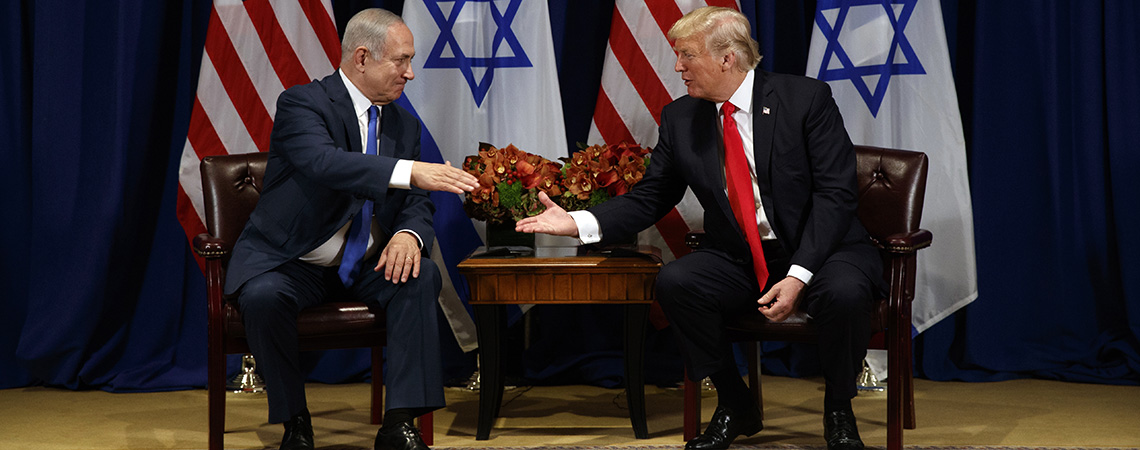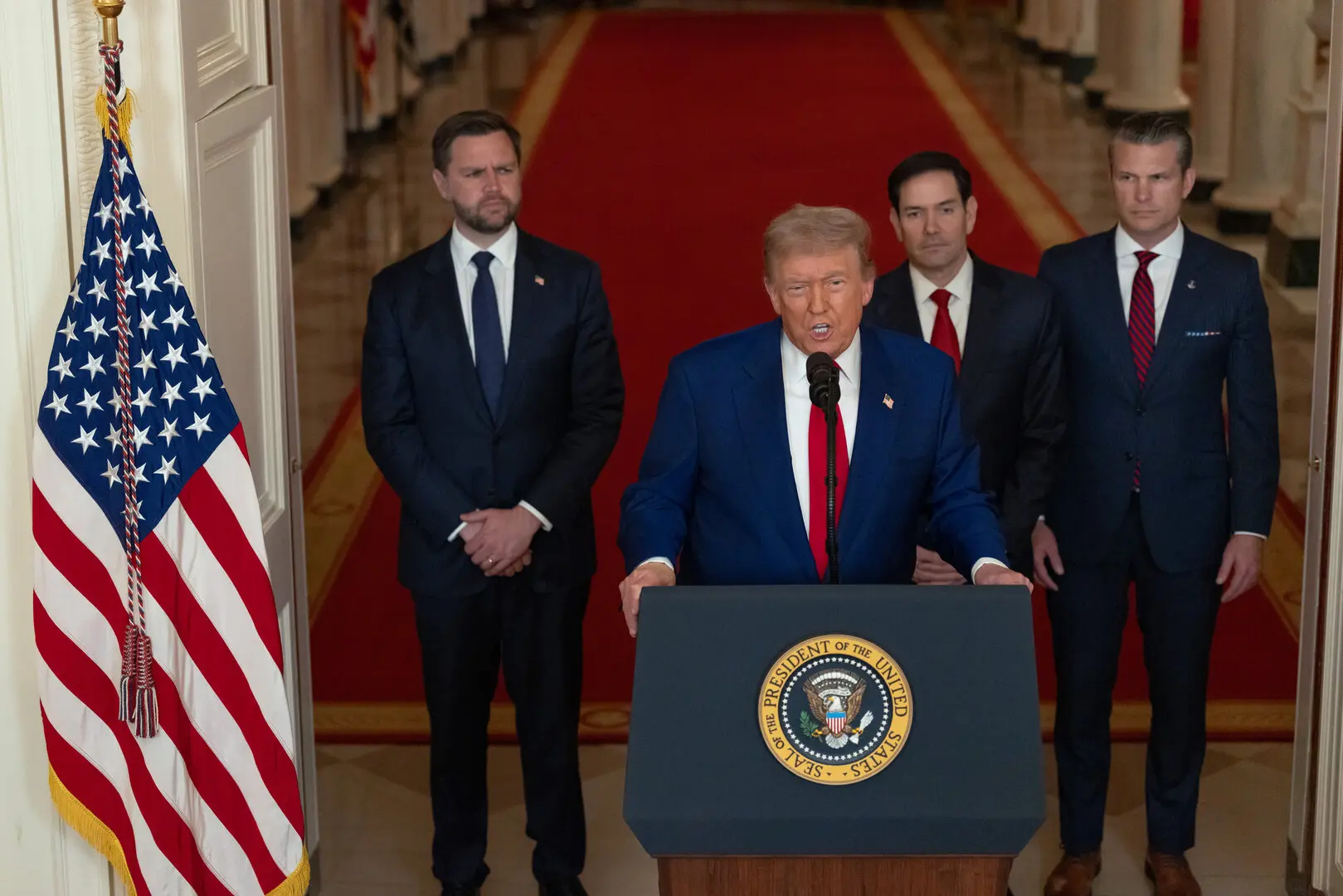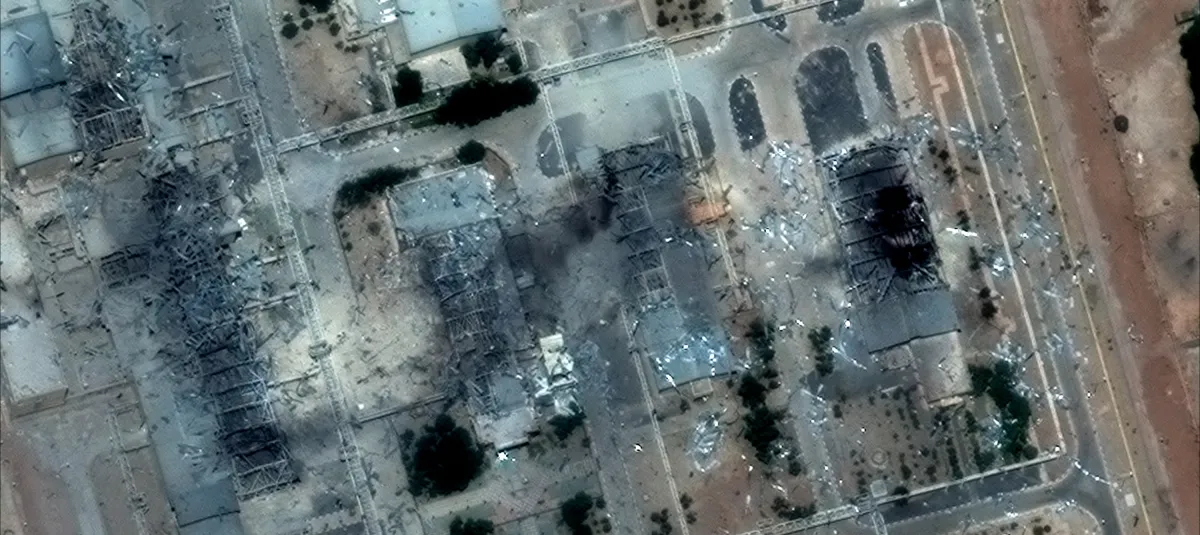La escalada de tensión en Oriente Medio, marcada por el bombardeo estadounidense a las bases nucleares civiles iraníes bajo la administración Trump, en apoyo al “ataque preventivo” israelí, dibuja un escenario global de máxima preocupación.

Esta narrativa, que imagina a Israel actuando bajo la falacia de una Irán nuclearizada, y a Estados Unidos respaldando unilateralmente tales acciones, sin el aval del Consejo de Seguridad de la ONU ni del propio Congreso estadounidense, es un reflejo de un orden internacional frágil y propenso a la unilateralidad. Desde Argentina, estas dinámicas adquieren una resonancia particular y alarmante, dadas las recientes decisiones de Javier Milei.

La premisa de un ataque israelí a instalaciones nucleares iraníes, justificado por una supuesta carrera armamentística nuclear de Teherán, ha sido consistentemente desmentida por organismos internacionales como el Organismo Internacional de Energía Atómica (OIEA). La comunidad internacional ha reiterado que el programa nuclear iraní está bajo estricta supervisión y tiene fines pacíficos. Sin embargo, esta narrativa de amenaza ha servido históricamente como pretexto para acciones militares que desestabilizan aún más la región, alimentando un ciclo de violencia con ramificaciones globales.
En este contexto volátil, la política exterior argentina ha experimentado un giro radical y sumamente peligroso. La decisión del presidente Javier Milei de trasladar la embajada argentina a Jerusalén, en abierta contravención del Derecho Internacional y las resoluciones de las Naciones Unidas, representa una ruptura con la histórica postura de no injerencia y equilibrio diplomático que caracterizó a la política exterior argentina.
Esta acción, que implica un explícito alineamiento con Israel, ha sido interpretada como una provocación por parte de Irán, país al que Milei ha calificado de "enemigo de Argentina", generando un fuerte repudio por parte de las autoridades iraníes.
Este cambio de rumbo no es un hecho aislado. La votación argentina en la ONU en contra de la resolución que condenaba el genocidio humanitario en la Franja de Gaza, sumado a la firma de acuerdos de cooperación en Educación y Defensa con el gobierno de Benjamín Netanyahu, profundiza la preocupación.
Estas decisiones no solo han puesto a la Argentina en una posición internacional comprometida, sino que han generado la posibilidad de un juicio político contra el presidente, por lo que muchos consideran una violación de los principios constitucionales y una desviación de los intereses nacionales.
La imprudencia se agrava con el pedido de Argentina para ser "socio global" de la OTAN y el anuncio de una intervención militar estadounidense, a través del Comando Sur, en el desarrollo antártico argentino. La propuesta de construir una Base Naval Integrada en Ushuaia, con la pretensión de que Estados Unidos la utilice para el abastecimiento de sus submarinos nucleares, es una medida que no solo compromete la soberanía nacional sobre un área geoestratégica vital, sino que también inserta a Argentina en la órbita de conflictos de potencias globales.
Esta alarmante alineación ocurre mientras Argentina mantiene usurpadas por el Reino Unido de Gran Bretaña, desde 1833, las Islas Malvinas y vastas áreas marítimas del Atlántico Sur, que suman 1.6 millones de kilómetros cuadrados. Dentro de la cual la empresa israelí Navitas Petroleum, se prepara para dar inicio con su socia Rockhopper, a la explotación de un yacimiento petrolero de clase mundial al norte de archipiélago que los usurpadores denominaron Sea Lion o León Marino.
Estados Unidos y Gran Bretaña no solo son socios históricos económicos y militares, sino que son los dos países miembros de la OTAN y los principales pilares del poder militar y el avance territorial de Israel en Medio Oriente. La paradoja es evidente: Argentina, víctima de un despojo territorial por parte de una potencia de la OTAN, busca ahora una asociación global con la misma alianza que sostiene militarmente a su ocupante.
La actitud violenta y unilateral de Israel contra sus vecinos, que podría constituir la antesala de una Tercera Guerra Mundial con la intervención de potencias como Rusia y China, exige una reflexión profunda. Las decisiones del presidente Milei, lejos de buscar la estabilidad y la paz, está arrastrando a la Argentina, hacia un camino errático, irresponsable y extremadamente peligroso.

La historia reciente demuestra que la injerencia en conflictos ajenos, especialmente aquellos con un alto componente geopolítico y militar, puede tener consecuencias devastadoras para naciones periféricas.
El futuro del mundo pende de un hilo, y las acciones incongruentes como las de Milei, que abrazan agendas unilaterales y confrontativas, solo contribuyen a tensar aún más la cuerda. Argentina, con su historia de defensa de la paz y el multilateralismo, está transitando una senda que la aleja de sus principios fundacionales y la acerca peligrosamente al precipicio de conflictos internacionales de imprevisibles consecuencias. Es imperativo que la sociedad argentina, sus instituciones y la comunidad internacional reflexionen sobre este derrotero antes de que sea demasiado tarde.






